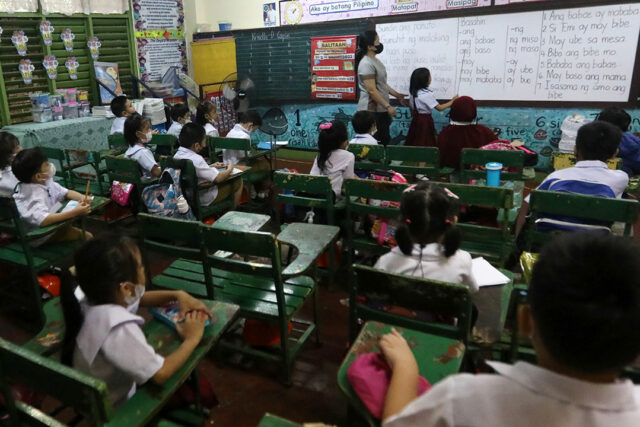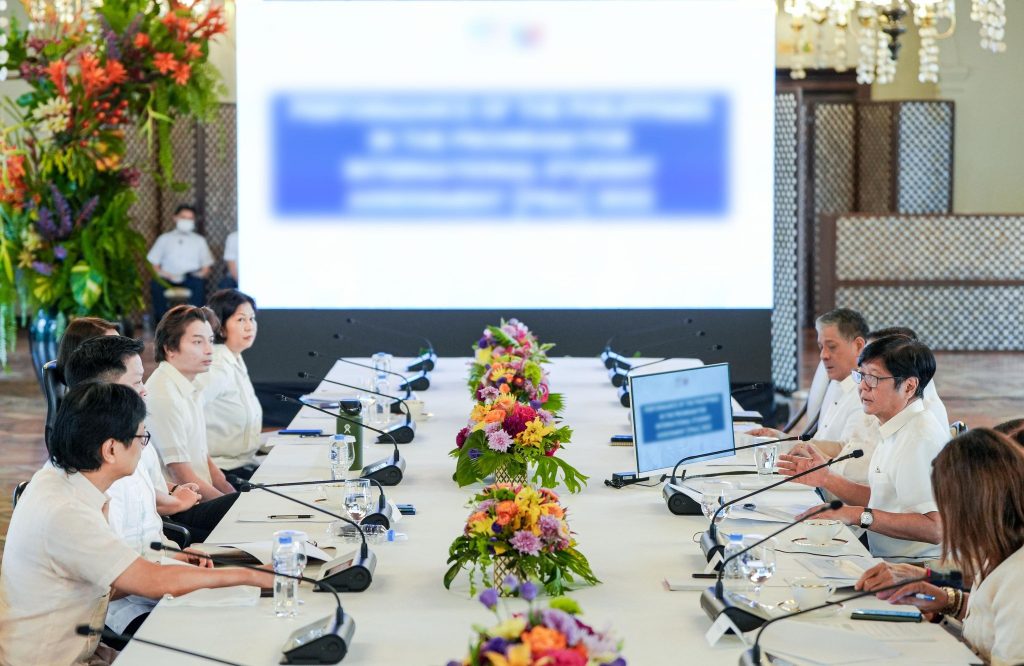Physical Address
304 North Cardinal St.
Dorchester Center, MA 02124
Physical Address
304 North Cardinal St.
Dorchester Center, MA 02124

Focus on Reading Literacy in the Philippines: A New Initiative
Education Secretary Sonny Angara recently proposed creating a task force aimed at improving reading literacy in the Philippines. This proposal aligns with President Ferdinand “Bongbong” Marcos Jr.’s call to enhance Filipino students’ performance in international assessments, particularly the Programme for International Student Assessment (PISA). During a post-SONA discussion, Angara emphasized the urgent need for targeted interventions to improve reading literacy in the Philippines and address other critical academic areas.

Current State of Reading Literacy in the Philippines
The proposal for a task force is a direct response to the Philippines’ disappointing performance in the 2022 PISA results. Filipino students ranked sixth lowest among 81 participating countries and economies, especially struggling in reading, math, and science. This low ranking clearly indicates the necessity to boost reading literacy in the Philippines. Angara highlighted that modifying local educational conditions is essential to achieving better results. Consequently, he stressed the importance of establishing a task force specifically focused on enhancing reading literacy.
Moreover, Angara pointed out that current teaching methods need significant adaptation. Specifically, he suggested that fostering critical thinking and problem-solving skills is crucial. “We need to modify local conditions to perform better in these exams,” Angara stated. Thus, the task force will be tasked with developing and implementing effective strategies to enhance reading literacy in the Philippines, addressing the challenges identified by recent assessments.
Immediate Strategies to Address Literacy Challenges
To tackle these challenges, the DepEd has outlined several short-term strategies. One key measure involves integrating additional reading periods into the daily curriculum. These sessions aim to strengthen literacy and numeracy foundations. By incorporating regular reading periods, the goal is to enhance students’ reading skills and comprehension. For instance, daily reading sessions are expected to provide immediate support to struggling students.
Additionally, the DepEd is launching initiatives like Catch-Up Fridays, which will focus on science projects. This initiative aims to provide extra support and help students catch up on essential subjects. Thus, these short-term measures offer immediate assistance and lay the groundwork for long-term improvements.
Long-Term Strategies for Sustainable Improvement
In addition to short-term solutions, the DepEd is committed to implementing long-term reforms. Angara noted that integrating 30-minute reading periods between classes is a crucial aspect of the long-term plan. These additional sessions will help bolster reading literacy in the Philippines and ensure that students develop strong comprehension skills. Consequently, these reforms aim to create a more effective and supportive learning environment.
Furthermore, long-term strategies also involve comprehensive changes to teaching methodologies. By aligning with global standards, these reforms are designed to improve overall educational outcomes. The focus will be on adopting effective teaching methods that promote deeper understanding and critical thinking. Such comprehensive reforms are intended to address the underlying issues affecting reading literacy in the Philippines.
Monitoring and Evaluating Progress
An essential part of the DepEd’s strategy is the ongoing monitoring and evaluation of these interventions. The department will track students’ progress to assess whether the new measures are achieving the desired outcomes. Continuous evaluation will help determine if the strategies are effectively improving reading literacy in the Philippines and guide any necessary adjustments. Therefore, regular assessment is vital to ensuring that the interventions are meeting their goals.
The proposed task force will play a crucial role in this monitoring process. It will be responsible for evaluating the impact of the new reading periods and other initiatives. By closely examining progress and making data-driven decisions, the task force aims to ensure that the interventions are effective and beneficial for Filipino students.
Addressing Broader Educational Challenges
The focus on reading literacy in the Philippines is part of a broader effort to address various educational challenges. President Marcos has emphasized the need for a national learning recovery program to address gaps in student proficiency. Recent assessments reveal that more than half of learners in grades 6, 10, and 12 have failed to reach ideal proficiency levels. This situation highlights the critical need for improving reading literacy and other essential skills.
Conclusion
In conclusion, the DepEd’s proposal to create a task force represents a significant step toward enhancing reading literacy in the Philippines. By focusing on both immediate and long-term strategies, the task force aims to improve student performance and address educational challenges. The DepEd commits to elevating Filipino students’ performance in international assessments and ensuring better educational outcomes for all by implementing additional reading periods, teaching reforms, and continuous monitoring. The dedication to improving reading literacy in the Philippines reflects a proactive approach to overcoming educational obstacles and fostering student success.